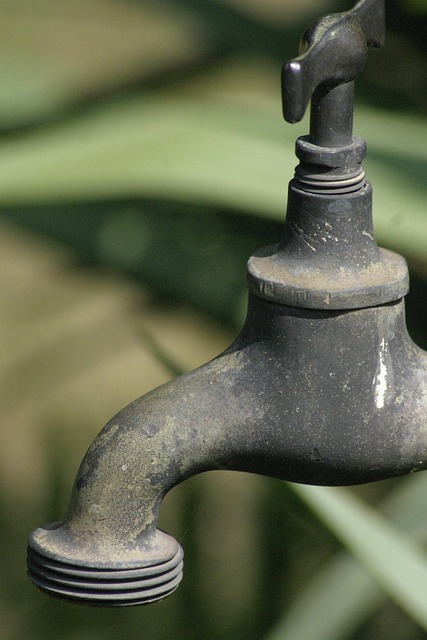Water leaks, often overlooked, cause substantial damage if not addressed promptly. Common sources include outdated pipes, faulty fittings, and worn-out appliances. Regular visual inspections, monitoring water usage, and utilizing DIY tools like moisture meters are essential for early detection. Professional leak detection services are crucial for hidden leaks, preventing extensive damage, saving money, and safeguarding investments. Regular maintenance, including insulating pipes and repairing faucets, reduces leak risks. Advanced smart home systems with sensors and apps offer real-time monitoring, predicting potential leaks. Understanding insurance coverage for leaks is vital to minimizing damages and costs.
“Discover the ins and outs of leak detection with our comprehensive guide. Understanding water leaks is the first step towards preventing significant home damage. Learn about common sources, subtle signs, and their impact beyond drooping plants. Explore DIY techniques, know when to call professionals, and implement preventive measures. From smart home technology to insurance considerations, this article equips homeowners with the knowledge needed for effective leak detection and management.”
Understanding Water Leaks: Common Sources and Signs

Water leaks are a common yet often overlooked issue in homes, leading to significant damage if left undetected. Understanding where they originate and how to identify them is crucial for homeowners. Common sources include outdated or damaged pipes, faulty fittings, and worn-out appliances like refrigerators or washing machines. These issues can manifest as subtle signs, such as small puddles under sinks or unusual noises coming from plumbing.
Regularly checking for leaks is essential, especially in areas prone to moisture like basements and bathrooms. Visual inspections and periodic maintenance can help catch problems early. Homeowners should also be vigilant about sudden changes in water usage or utility bills, as these could indicate hidden leaks that require professional leak detection services.
The Impact of Water Leaks: More Than Just a Drooping Plant

Water leaks can cause far more damage than just a wilting plant or two. These subtle yet powerful perpetrators can quietly erode your home’s structure and significantly increase your water bills. The impact extends beyond visible signs; hidden leaks can lead to mold growth, which poses serious health risks to occupants. Additionally, they contribute to soil erosion around the foundation, potentially causing structural instability over time.
Early detection through leak detection services is key. Professional equipment can identify even the smallest dribbles, allowing for swift repair and preventing extensive, costly damage. By addressing leaks promptly, homeowners can save money, protect their health, and safeguard their investment in their homes.
DIY Leak Detection: Tools and Techniques for Homeowners

DIY leak detection is a valuable skill every homeowner should possess, enabling them to identify and address water leaks promptly. Armed with the right tools and techniques, you can navigate your home’s plumbing system like a pro. Start by acquiring essential items such as a moisture meter, which measures humidity levels, helping you pinpoint wet spots. Don’t forget a thermal imaging camera, useful for detecting temperature variations indicating hidden leaks.
Next, learn to trace pipes visually using black light or UV flashlights, revealing any visible damage or seepage. Sound is another powerful tool; listening for unusual noises in your walls or ceilings can alert you to potential leak locations. Additionally, checking water meters regularly and comparing usage with your utility bills can help identify sudden spikes, indicating hidden leaks. With these DIY methods, homeowners can take proactive steps towards leak prevention and repair.
When to Call in the Pros: Professional Leak Detection Services

If you’re dealing with what seems like a persistent leak, but aren’t quite sure where it’s coming from, it might be time to call in the pros for leak detection services. While there are DIY methods and tools available to homeowners, professional leak detection offers several advantages. Specialized equipment like moisture meters, thermal imaging cameras, and radar technology can pinpoint leaks hidden behind walls, under floors, or inside pipes—areas that are often inaccessible to amateur detectives.
Professionals also have the expertise to assess complex plumbing systems and identify subtle patterns that could indicate multiple leak points. Plus, they can provide a detailed report with recommendations for repairs, ensuring your home’s water integrity is fully restored. In the long run, early detection by professionals can save you money by preventing extensive water damage and costly renovations.
Preventive Measures: Maintaining Your Home to Avoid Leaks

Regular maintenance is key in preventing leaks and the costly damage they cause. Start by regularly inspecting your home’s plumbing system, paying close attention to areas prone to leaks like pipes, fixtures, and appliances. Addressing any issues early on can save you significant headaches down the line.
Implement simple preventive measures such as insulating exposed pipes during cold months, fixing dripping faucets immediately, and ensuring proper ventilation in attics and crawl spaces. Additionally, using water-efficient appliances and fixtures not only reduces your utility bills but also lowers the risk of leaks.
Repairing Common Leak Sources: A Step-by-Step Guide

Leak detection is a crucial skill for homeowners, enabling prompt addressing and repair of common sources before they escalate into major issues. Start by locating the source, which often reveals itself through persistent dampness or water stains on walls, ceilings, or floors. Once identified, follow these steps to fix the problem:
1. Turn off the Water Supply: Locate your home’s main shut-off valve and close it to prevent further water flow to the leaking area. This quick action can save you from significant water damage.
2. Isolate the Leak: Identify the specific pipe, fixture, or appliance causing the leak. This could be a leaky faucet, a broken washing machine hose, or a cracked water pipe. Isolating the source helps in targeted repair and minimizes damage.
3. Repair or Replace: Depending on the severity, you might need to fix a simple issue like tightening a loose pipe connection or replace worn-out components such as old faucets or worn washer rings. For major leaks or complex issues, consider hiring a professional plumber for safe and effective resolution.
Technology in Leak Detection: Smart Homes and Advanced Systems

The evolution of technology in leak detection has transformed how homeowners address plumbing issues. Smart homes, equipped with advanced systems, offer a range of solutions that go beyond traditional methods. These modern systems utilize sensors and connected devices to monitor water usage and detect even the smallest leaks. From smart valves that can remotely shut off water supplies to real-time monitoring apps, these technologies provide homeowners with unparalleled control and peace of mind.
Advanced leak detection systems incorporate artificial intelligence and machine learning algorithms to predict potential problems before they occur. By analyzing patterns in water consumption, these systems can identify anomalies that may indicate a developing leak. This proactive approach not only helps prevent extensive water damage but also saves homeowners money by identifying issues early and allowing for prompt repair.
Insurance and Water Leaks: What You Need to Know

Water leaks can have devastating effects on your home and finances, which is why understanding your insurance coverage is crucial when it comes to leak detection. Many homeowners’ insurance policies include protection against water damage caused by leaks, but the specifics vary widely between plans. Before a leak occurs, review your policy to know what’s covered and what isn’t. Look for terms like “plumbing,” “roof,” or “basement” to understand where your coverage extends.
In the event of a leak, immediate action is essential. Not only will it prevent further damage, but it could also save you money on your insurance claims. Many policies have provisions for emergency services and temporary repairs, so contact your insurance provider promptly if a leak is suspected. Additionally, consider investing in a leak detection system to provide early warning signs of potential issues, empowering you to address them before they turn into costly disasters.
